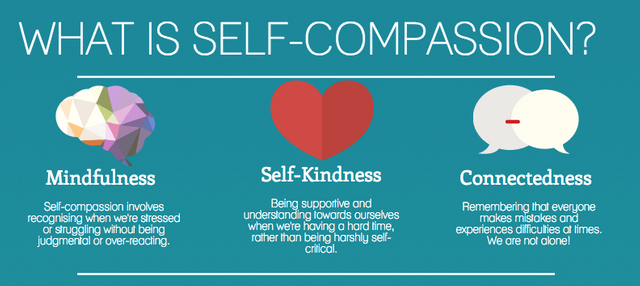Another Kind of Happiness
What Is Happiness And How Do We Get It?
These days, we are all under pressure to be productive and achieve external goals. Get a job or get better grades, get those sales numbers up, write more, whatever the case may be.
And when it comes to our own happiness, we apply that same thinking. We assume when we hit our goals, we'll be happy. We want more good feelings and less bad ones, so if something feels good we do more of it, and if it's bad, we stop. Achieving things feels good, at least for a while.
But this kind of thinking just doesn’t seem to work in the long run. There are always more goals, and more dissatisfaction. And yet, it seems obvious that a good life is a happy life, and a happy life is one full of feelings of happiness.
But is it true? Emotions come and go, and we can’t directly control them.

And the experiences and accomplishments that people are most proud of don’t always feel good, especially not in the beginning. Parents raising kids aren’t exactly stress free all the time and that’s normal.
Writing a fascinating story or painting a great work of art you’re proud of aren’t always fun tasks. Tapping on the keyboard when it’s nice outside, or practicing your drawing skills can be boring.

The True Nature of Happiness
But recently, new ideas about happiness have been put forward by some psychologists. These ideas are influenced both by ancient philosophy, and by modern neuroscience. This new story about happiness looks at the problem from a different angle.
In the psychological theory of Acceptance and Commitment Therapy, our human struggle to be happy has its roots way at the start of our history as thinking beings. It started with language itself...oh no, a lion! Run, don’t get eaten!

The human mind knows exactly what to do in a dangerous situation like that: move away from the danger. Fear serves a rational, useful purpose when the object of fear is present and about to inflict harm. But what about a situation like this?

Say for example you're nervous to ask someone on a date. To your mind the risk of social rejection is scary. It's just like the lion. To your mind, taking a social risk, like all scary things, is better avoided. Your mind is trying to help. It wants to keep you safe, but in the long run it only reinforces the fear and tricks you into moving away from what’s important to you.
In Acceptance and Commitment Therapy, this is called experiental avoidance. It just means to struggle with your emotions and thoughts, whether by avoiding what causes them, overcompensating for them, or arguing yourself and fighting them.
This 3-minute video explains it.
So What's To Be Done?
Luckily, it is possible to change this pattern. We can cultivate mindfulness, which is the brain’s natural ability to pay nonjudgmental, accepting attention. It doesn’t mean you don’t feel fear anymore. It means you feel that fear, notice how your body reacts, breathe into the tightness in your body where the emotion physically manifests.
Allow the fear to be there- or the sadness, joy, or anything else. With mindful awareness and a clear sense of our values, we can move our behavior in directions we value more deeply than temporary comfort and pleasure.
Welcome your emotion as one of the numberless mental states your brilliant, survival-focused caveman mind can produce.

This vision of good living makes the case that it's by living according to our values, and appreciating the full range of human emotions, that we can live full, meaningful lives. Indeed, if we imagine great people of the past like Dr. Martin Luther King Jr., or many great inventors and spiritual leaders, their lives were often quite difficult.
But were they unhappy? Not exactly. Their lives were full of meaning, even if things were hard on a day-to-day level. They were doing what was important to them, rather than valuing transient pleasant emotions above all else.
As the Persian poet Rumi wrote centuries ago:
"This being human is a guest house.
Every morning a new arrival.
A joy, a depression, a meanness,
some momentary awareness comes
as an unexpected visitor.
Welcome and entertain them all!”
It's wise to accept what you feel, not necessarily getting caught up in it, but accepting and allowing your experience and allowing it space within you. And then, bring your attention back and connect to the present moment, and act according to your values. We can’t control our emotions directly, but we have more influence over our behavior.
How Can We Use Those Skills?
So, what now? It’s an interesting idea, but how to put it into practice? Well, I’m still learning about all this myself. But here’s one technique I’ve learned about that might help if you find yourself thinking an unhelpful thought. For example, say you just gave a presentation at school, you feel like it didn’t go so well, and now you’re panicking. “I fucked up,” you might think. Or even, “I’m such a failure".
You can think, “I’m having the thought that I messed up the presentation.” Or better yet, “I notice that I’m having the thought that I messed up the presentation.” This might help put some distance between your wiser, observing self, and the panicked animal mind that 's freaking out and wants you to stop doing presentations. It thinks your tribe will cast you out and you’ll have to travel the Savannah fighting saber-toothed tigers and Conan wannabes till your tribe comes to their senses. But you don't have to buy that story.

Till then, it's on!
You can even set the self-critical thoughts to the tune of a funny song and play them backwards, or imagine them written on balloons that scatter and reform into new words. Either way, you might be reminded that the thoughts are just thoughts and not reality. Believing your mind is not mandatory. The map is not the territory.
Of course, sometimes unpleasant things are true. But there’s rarely as bad as we think, and besides there's no reason to beat ourselves up over them. And self-compassion is always a better bet than punitive self-criticism.
The Mind Is Its Own Worst Enemy- And Greatest Ally
Often, I still find myself getting caught up in and believing all the scattered and not-always-helpful stories my mind weaves out of thin air. But I try to remind myself that the potential to respond mindfully is still there. There is always the chance to notice, accept, reflect on and act in spite of these stories. You can even respond to these self-critical stories with compassion and kindness, proposing new explanations of yourself and what’s going on around you.


It might sound tough- and it is. After all, the most powerful and complex machine in the universe spins these stories and maintains them. It’s the human brain, which took us from hurling sticks at wild animals in our caveman days

to building globe-spanning communications networks, like the blockchain-powered social media site we’re using right now.

But we have more than a fighting chance. Because that same human brain is just as powerful in its capacity to heal itself. It can learn, understand, gather knowledge and wisdom, and cultivate its capacity to love. And that love and wisdom can be applied to itself as well as to others. Many of us would never speak to others as harshly as we do to ourselves, after all. So why not practice speaking to ourselves as our own best friends?
But maybe happiness is different. Maybe it’s not something that is gathered or gained. Not a person, job, or a place, not a beautiful villa on the Greek coastline or a loving and attentive partner. Not that those things aren’t great. But perhaps the true nature of happiness is a skill and an approach to life.
Being a good sportsman is part of being a good soccer player, and a good artist gets up everyday and learns about her craft, practicing her skills in order to create something beautiful and valuable that will enrich the lives of others.
By happiness, what we really mean is ‘living well’. And that is a set of skills that anyone can learn and practice and add to over time.
I am trying to invest my labor, not in trying to get away from unhappy feelings and to chase happy ones. Instead I will try to accept all emotions, good or bad. That doesn’t mean I like them or won’t do anything about the conditions that caused them.
It just means I’ll let the emotional weather do what it wants to do while I build up my infrastructure of wellbeing. I’ll enjoy good feelings when they come, but focus on building a rich, full and meaningful life.
Sources
mindful brain picture source
Lion image
youtube video source
self compassion image
Rumi poem
dog picture
multiple emotional expressions
blockchain image
caveman hunting
Hi - Happiness as living well fits in nicely with the Greek idea of 'Eudemonic happiness' - as you say, happiness is best defined as living well, which may include embracing uncomfortable experiences rather than retreating into our comfort zone!
I actually did a very in-depth post on this recently - what is happiness? which you may be interested in
When I decided to give up pursuing happiness but to focus on being satisfied I soon realized that I was happy.
That's why I'd say, don't focus on forcing good moments in your life, but just remove the negative aspects and work towards creating a stable environment for your life. After getting to that point, the rest with moments of happiness will occur on their own.
wonderful dear it is really amazing........
Today i am share with you a my some experience about #medicines
Actually i am work on pharmacy
and i know some things about medicine which is really important for you.
The basic salt of medicine is #Diclofanic #Potassium.......
basically it is used in mascular pain.
we are share some pictures of the medicine which is really effactive in all types of pain.
Inspirational. True happiness always comes from within. And to do that we have to make a choice to not let any of these external factors govern our happiness.
good work thank you much very nice
These days, creating our happiness is more important than ever before. With the research that scientists and doctors are finally releasing about the terrible dangers of stress and loneliness, we must be proactive in doing all we can to find our happy :)
...and i´m so happy :) ... thank u
This is really a great post. I like your videos. and your article is well written. Really good! I follow you now.
If you like my Posts, just Follow me and Resteem and Upvote my Posts. @thunderland
People only put themselves under pressure cos they doubt their skilled abilities.
With adrenaline a lot of people don`t know how to balance it out. Especially when the adrenaline kicks in and this is why so many people live in fear cos they fear themselves too much not the actual world that surrounds us all.
upvoted&followed, look at my photos :)